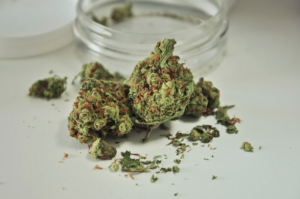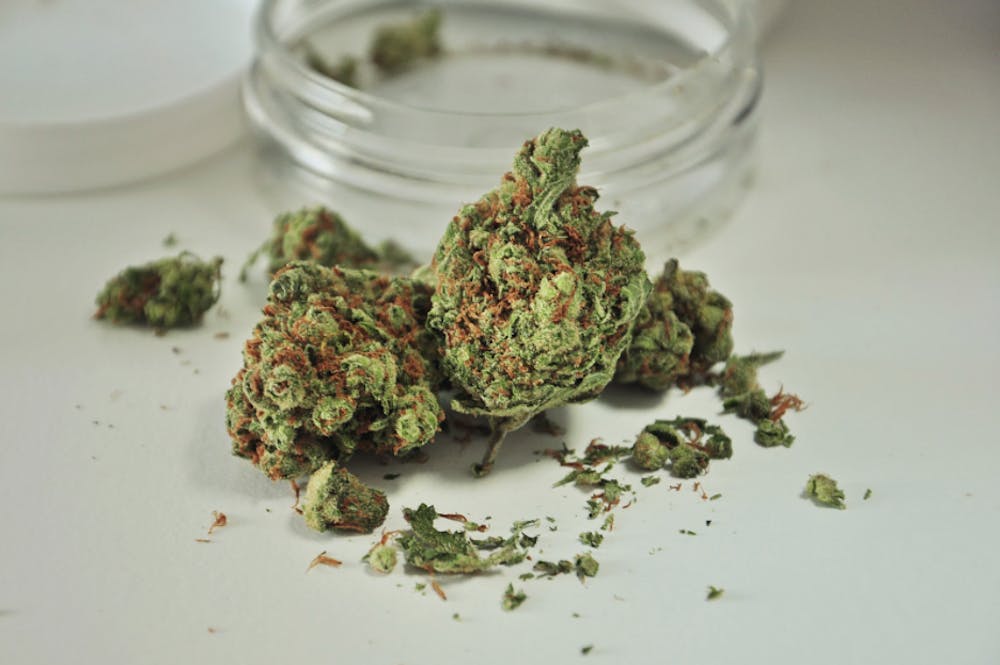By Elliott Nguyen
Staff Writer
Gov. Murphy signed three bills on Monday to legalize marijuana for those over the age of 21, ending a stalemate that prevented Murphy from fulfilling one of his early campaign promises.
The decision, which comes after a majority of voters answered ‘yes’ to November’s ballot question, makes New Jersey the 13th state in the nation to legalize marijuana. New Jersey joins Maine, Massachusetts and Vermont as the only states with legal weed on the east coast.
The third bill, which lawmakers added at the last minute to convince Murphy to sign the other two, reduces the punishment for underage possession of both marijuana and alcohol, part of Murphy’s effort to address racial injustice.
That same day, another bill was approved by the state Senate to eliminate mandatory minimum sentencing for all non-violent offenses.
“New Jersey’s broken and indefensible marijuana laws are no more,” said Governor Murphy in a tweet announcing the bills’ passing. At a briefing in Trenton, he added, “Starting immediately, those who had been subject to an arrest for petty marijuana possession … will be able to get relief and move forward.”

Citizens over 21 are allowed to legally possess up to six ounces of marijuana. Replacing the criminal charges for underage possession are “written warnings that escalate to include parental notification and a referral to community services upon subsequent violations,” according to NBC.
The measure was controversial, garnering criticism from some state lawmakers as well as those involved in law enforcement. “We’re now saying if you’re caught with it underage it’s a free pass,” said Republican state Sen. Bob Singer.
The third bill also prevents police officers from detaining underaged users longer than is needed to issue a warning, and charges officers who do so with deprivation of civil rights. In response, the NJ State Policemen’s Benevolent Association released a statement saying, “The language is anti-police rhetoric at its worst and its consequences will be real … We have literally been handcuffed.”
There are currently no legal avenues for NJ citizens to grow their own recreational marijuana, nor is there any mention in the bill of releasing drug offenders currently imprisoned for crimes related to the substance.
A significant effect of the law is its potential to bring into the booming cannabis industry. Though there is not yet a way to legally purchase marijuana without a medical card, and recreational dispensaries cannot get licenses until the state launches its Cannabis Regulatory Commission, 70% of the money raised from taxing marijuana sales will be put towards 20 cities where minority communities have been disproportionately affected by drug arrests, according to the Asbury Park Press.
The bills are intended to create a legal marketplace for the substance, and new businesses could mean new opportunities for the community, including students at the College.
One local company, Justice Cannabis Co., announced on their website that they had received a permit to grow and process cannabis. The company is currently constructing a cultivation facility in Ewing Township and plans to open a dispensary on Olden Avenue, along with two others in other parts of the state.
“[Justice Cannabis Co.] is hiring a local team and we are happy to bring new jobs to NJ. I could see this having an impact on local college students,” said Laureen Stowers, the Vice President of Marketing for the company. She also added that the company was rebranded from “Justice Grown,” and that their dispensaries will be now called “Bloc Dispensary.”
"It is very likely that adults over the age of 21 years of age are eligible candidates to work in one of our facilities,” Stowers said.
When asked about a potential time frame for opening their dispensaries, Stowers responded "We hope by the end of this year." She added that though students would still need a medical license to purchase marijuana if nothing changes, they expect to be selling recreationally soon.
The Signal sent out a survey to students at the College regarding their thoughts on the topic. Of the 16 that have responded, 15 said they supported the bill. 12 also said they felt that students should be allowed to smoke on campus. Under the College’s current policy, students are prohibited from using or possessing marijuana.
According to the current policy, “A student who violates the Alcohol and Other Drug Policy is subject to referral and adjudication through the student conduct process and applicable local or state legal authorities. Possible sanctions may include community service, referral to the Alcohol and Drug Education Program (ADEP), education mandates, administrative directives, removal from College assigned housing, and suspension or expulsion from the College,” with exceptions when the College’s amnesty policy is involved.
Before Covid-19 moved learning online, there was an average of 9.7 arrests per year for drug-related violations from 2017 to 2019, and 38.7 drug-related disciplinary action/conduct referrals per year during the same time period, according to the College’s 2019-20 Security and Fire Safety Report. The statistics are separated from alcohol-related statistics, but it is unclear how many of those arrests and referrals were for marijuana specifically.
William Straniero, the deputy director of Campus Police, said that because this law takes effect immediately, there will be a period of interim policy while the department, the College and other local police departments decide what to do. As it stands, officers now cannot use smell as a basis to search a student’s room. Any legal punishments would be in accordance with the new law, but punishments on the College’s end may be different.
“This afternoon [Chief Timothy Grant] and I are on two Zoom meetings, one with the Mercer County Prosecutor’s office … and with the Attorney General who is having a Zoom meeting statewide for law enforcement,” he said.
“It affects a bunch of different departments,” he said, discussing the ways in which the bill will impact campus life. He also mentioned that the substance is still illegal on a federal level, and so that may play a role in any adjustments to the College’s policy.
“There are going to be a lot of substantial changes,” he said.







